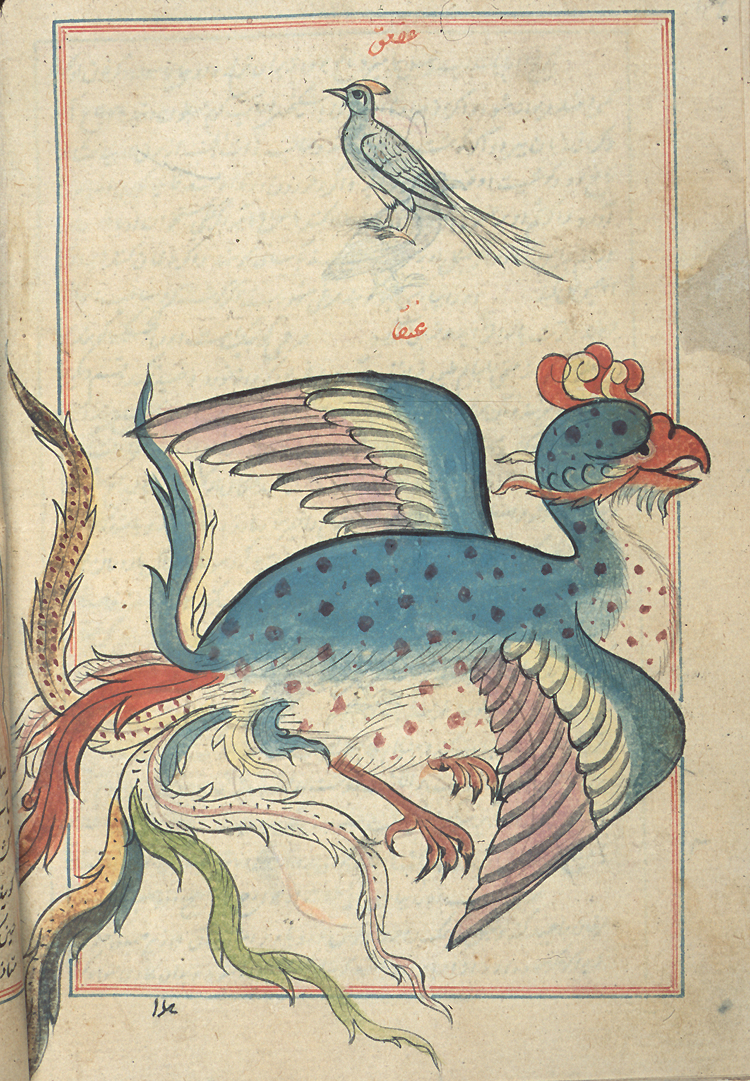FWP:
SETS == GENERATORS; IDIOMS; POETRY; SYMMETRY
GENERATOR verses: {1,4}*; {4,4}*,
on 'list' verses; {4,5}; {4,9x}; {5,4}; {5,8x}; {15,10}*;
{15,11}; {15,17x}, vexing;
{18,2}; {21},
most verses; {24,1}; {26,8}; {27,1};
{32,1}***; {35,4}*;
{36,7}; {38,5}*;
{40,3x}; {41,4};
{42,2}; {42,6}; {45,3}**;
{46,7}*; {49,9}; {68,6x}; {71,3}*;
{75,6}; {79,1};
{82,2x};
{96,1}*; {97,10};
{98,5}; {98,10}; {101,5}*; {103,2x}; {106,1};
{111,1};
{111,14}; {119,6};
{131,8};
{138,1}*; {141,3}, problematical;
{145,14x}; {147,3}; {152,4}; {155,1}; {165,2}*; {167,1}**;
{169,3}**; {170,2};
{177,1}; {183,4};
{189,1}; {190,1};
{196,7}; {202,4}; {203,2}; {206,3};
{208,8};
{213,2}; {213,3x}, Gyan Chand; {214,2};
{214,10};
{219,1}; {220,2};
{230,1}; {230,7}*;
{232,4} // {319x,7}; {398x,4}; {424x,6}
As Faruqi has pointed out (July 2000), to say mudda((aa ((anqaa hai , 'the meaning is an Anqa', is also an idiomatic way of saying that something is meaningless. Ghalib's Anqa verses do in fact tend to be on the obscure side.
Line two is, in almost a mathematical sense, 'symmetrical': it plays on the Urdu grammatical fact that to say 'A is B' is equally to say 'B is A'. So we can say either that the mudda((aa is an Anqa, or that the Anqa is a mudda((aa -- or, of course, both, since there's no way to choose between them.
It is common to take the apne in the second line as equivalent to mere apne , 'my own'; for examples and discussion of this flexibility in apnaa , see {15,12}. But it literally means 'belonging to the subject of the sentence', thus yielding the abstruse (and very post-modern-looking) meaning presented as (2c). Moreover, we must then ask whose intention-- the poet's in composing poetry, or the reader's in seeking to understand it?
The result is an early example from a set of verses that might well be called 'meaning generators', since they're impossible to resolve into one interpretation (or even two, or even three or four). There will be many more of these to come.
I used a free transcreation of this verse as a source for the title of Nets of Awareness. Could there possibly be a better introduction to Ghalib's poetry than this verse?
And here's a salute to our Urdu poetry group: they very much improved (Oct. 2023) my translation of this verse. I had somehow translated aagahii as 'intelligence'; they pointed out that 'awareness' was a much better translation, more in accord with my own commitment to maximum literalness.
Here's a provincial Mughal vision of the Anqa:

Nazm:
That is, you can report my speech to whatever extent you may desire; it is impossible to arrive at its meaning. Even if the ardor for awareness becomes a hunter and spreads the net of hearing, so what? The meaning of my speech is the Anqa bird, upon which a net can never be flung. In short, my verses are entirely mysteries [saraasar asraar]. (2)
== Nazm page 2